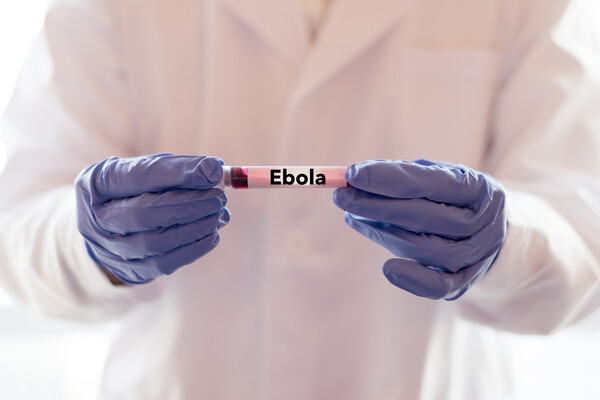
SK bioscience, a vaccine unit of Korea's SK Group, said on Wednesday that the company has entered into a development licensing agreement with Hilleman Laboratories, a Singapore-based vaccine research organization, for the joint development of a second-generation Zaire Ebola virus vaccine.
Hilleman Laboratories and SK bioscience will collaborate to increase production process productivity and improve product thermostability which would potentially help increase the global Ebola vaccine supply and help expand access.
Currently, there are two commercially available Ebola vaccines, Ervebo developed by MSD, and Zabdeno by Johnson & Johnson. Together with MSD, Hilleman Laboratories also successfully identified candidates for a second-generation Ebola vaccine, according to SK bioscience.
Through this agreement, SK bioscience targets to supply the vaccine to low- and middle-income countries (LMICs) at a competitive price, following the development of the second generation of Ervevo with improved vaccine production efficiency, and thermal stability.
In addition, once the vaccine is commercialized, SK bioscience will produce the vaccine at its vaccine plant, L House, in Andong, North Gyeongsang Province.
Earlier in May, SK bioscience and MSD signed a contract manufacturing organization (CMO) agreement for the second-generation Ervebo.
The second-generation Ervebo is in the stages of drug discovery, and it remains to be seen when it will be able to enter clinical trials.
Ebola Virus Disease (EVD) is a rapidly progressive, severe, and transmissible hemorrhagic illness caused by infection with one of the Ebola Virus (EBOV) species. While there are six identified EBOV species, the Zaire Ebola virus strain has been the leading cause of outbreaks over the last 20 years.
Ever since the Ebola virus was first discovered in 1976, there have been multiple outbreaks resulting in significant loss of lives with a 50 percent mortality rate and economic impact.
In 2014, the World Health Organization (WHO) declared an international public health emergency during the Ebola outbreak and encouraged the development of the vaccine when the virus was spreading rapidly in West Africa.
According to news reports, most vaccines supplied to developing countries are inexpensive. These include vaccines for typhoid, diphtheria, polio, hepatitis B, and more, sourced from international organizations such as the United Nations Children's Fund (UNICEF) and the Pan American Health Organization (PAHO). Inexpensive vaccines start at $0.50, and most don't cost more than $10.
The Ebola vaccine, on the other hand, is a so-called premium vaccine, which is expensive for an international organization. MSD's existing supply of Ebola vaccine Ervebo to UNICEF is priced at $98, and this price will remain until 2025.
Dr Raman Rao, CEO of Hilleman Laboratories said, “Developing vaccines that are more affordable and accessible is core to our mission at Hilleman Laboratories. Our collaboration with SK biosciences on such an impactful vaccine program will allow us to create positive outcomes for global public health, especially in affected regions of Central and Western Africa”.
SK bioscience CEO Ahn Jae-yong said developing a vaccine to prevent viruses causing diseases with a high fatality rate, such as Ebola-Zaire, is an essential task for the company to protect humanity.
"By cooperating with Hilleman Laboratories for a successful development of the second-generation Zaire Ebolavirus vaccine we will contribute to overcoming the Ebola Zaire disease burden and expand our cooperation with global companies and institutions.”
Related articles
- SK bioscience seeks emergency use of updated Novavax Covid-19 vaccine in Korea
- SK bioscience strikes deal with Serbian gov’t to establish vaccine localization partnership
- SK bioscience withdraws conditional marketing authorization for Covid-19 vaccine in EU
- SK bioscience says cell-cultured influenza vaccine will become new norm
- SK bioscience reorganizes into 6 units, appoints ex-Pfizer exec as vice president
- SK bioscience, Sanofi seek FDA nod for phase 3 study of 21-valent pneumococcal conjugate vaccine
- Korea begins administering Novavax’s updated Covid-19 vaccine for 1st time in Asia
- SK bioscience moves up one notch in MSCI’s ESG rating

